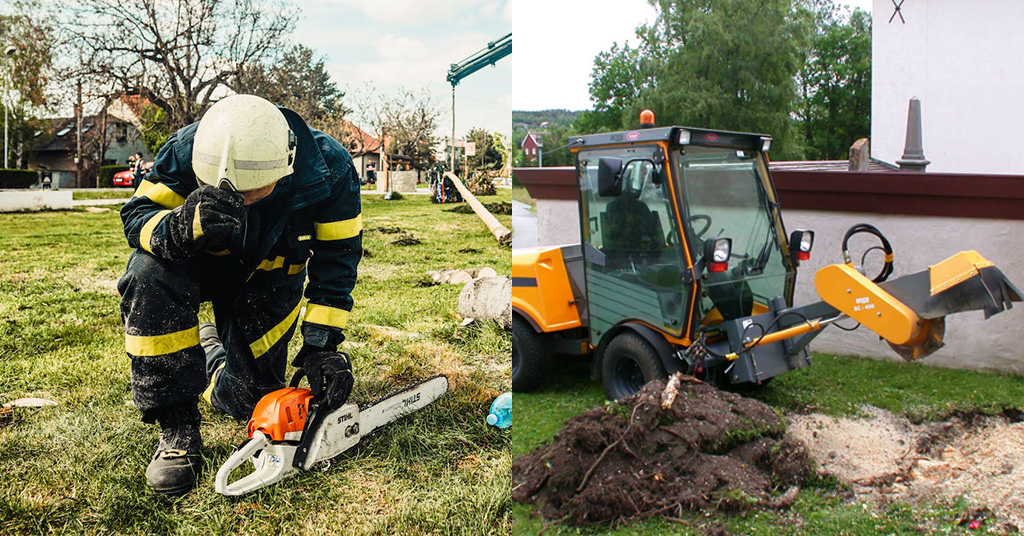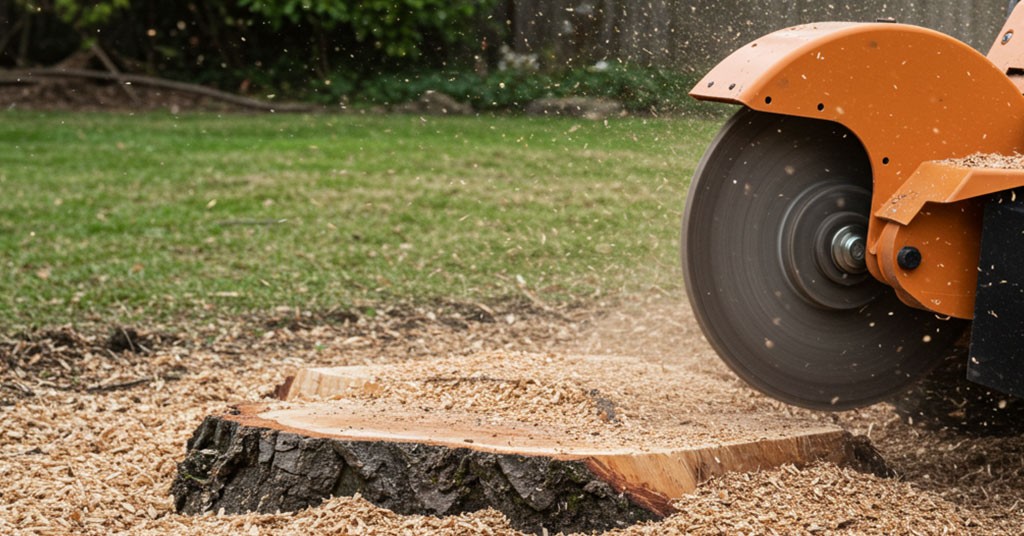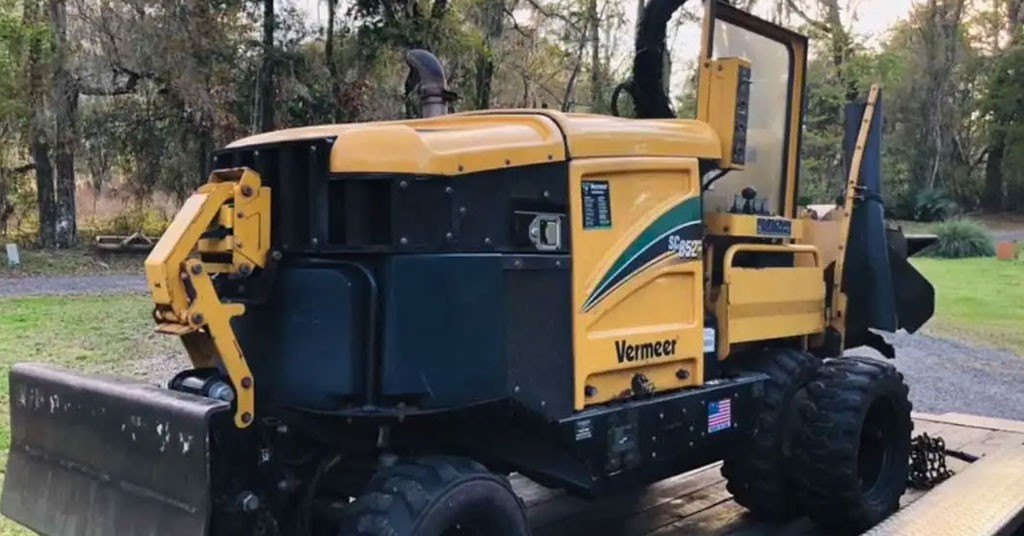

- 01 Dec, 2023
- Jacksonville Stump Grinding
Overview
Stump grinding has changed dramatically in the arboricultural industry, going from a tedious human procedure to a precise and effective technical marvel. This article traces the development of technology in stump grinding, emphasizing significant advancements and their effects on this crucial procedure.
The Earlier Times: Manual Processes and Their Restrictions
Before the invention of contemporary stump grinding equipment, DIY tree stump removal required a lot of effort and time. The main instruments used to remove these obstinate remains of fallen trees were axes, saws, and human labor alone. This process was time-consuming, risky for workers' safety, and frequently left dangerous and ugly residues in its wake.
The Development of Mechanical Grinders: An Advance
With the advent of mechanical grinders in the middle of the 20th century, stump grinding technology underwent a dramatic advancement. These devices, which were frequently placed on tractors or other vehicles, ground stumps into wood chips by using revolving blades or cutting discs. These early mechanical grinders had limitations in terms of precision and efficiency, although being an advance over human techniques.
Improved Performance and Accessibility with Hydraulic Power and Transportable Solutions
The incorporation of hydraulic systems marked a significant advancement in stump grinding technology throughout the 1980s. Thanks to this improvement, operators could now handle larger and more difficult stumps since they had more power and control.
According to Stump Grinding Jacksonville, hydraulic stump grinders opened the door for portable solutions, which made it simpler to reach stumps in a variety of settings, such as residential regions and cramped quarters.
Progress in Cutter Technology: Sturdiness, Edge Sharpness, and Adaptability
Significant advances in cutter technology in the twenty-first century have increased the efficacy and efficiency of stump grinders. Because of their superior sharpness and endurance, tungsten carbide teeth have become the industry standard, enabling quicker and more accurate grinding. As per Stump Removal Middleburg experts, the advent of more adaptable cutter designs enabled operators to tailor their strategy according to the size and type of stump.
Safety, Accuracy, and Self-Sufficiency in Remote Control and Robotics
The combination of robotics and remote control has transformed stump grinding in recent years, providing operators with higher levels of precision and safety. Remote-controlled stump grinders provide users complete control over the equipment while allowing them to stay a safe distance away from the grinding operation. Modern versions go so far as to use artificial intelligence to remove stumps on their own, eliminating the need for direct human interaction.
Environmental Aspects: Arboriculture's Sustainability
Environmental sustainability is highly valued in modern stump grinding technologies. Manufacturers have improved their equipment to create less pollution and noise, which makes them more environmentally friendly. According to Stump Grinding Jacksonville FL, the use of bio-degradable hydraulic fluids has become more prevalent, aligning with the growing global focus on sustainable practices in arboriculture.
Conclusion: An Exhibition of Originality and Resourcefulness
Upon examining the development of stump grinding technology over time, it becomes evident that innovation has been essential in converting a laborious and time-consuming undertaking into a simplified and effective procedure. According to Stump Grinding Gainesville, The development of stump grinding technology from manual labor to hydraulic power and, more recently, robotic and remote-controlled solutions, is a monument to human creativity and the arboricultural industry's unwavering quest for efficiency and safety. It's interesting to think about how stump grinding may develop in the future and how this will enhance the tree removal and environmental conservation landscape.
Related Blog
- 01 Sep 2024
- 0 Comment
What are other methods of stump removal?
Stump removal entails uprooting tree stumps from the ground using a machine named stump grinder. Stump originating from ground-up stump materials are disciplining for your ground to avoid the conclusion of revolting dips or voids in your yard. Ensure that...
- 01 Oct 2024
- 0 Comment
10 Benefits of Stump Grinding
A specialized device, a stump grinder, removes tree stumps from the ground during the stump removal procedure. By reducing the stump to tiny wood bits, this equipment removes it from the landscape permanently. To ensure that the entire tree is...
- 05 Jul 2024
- 0 Comment
Our Approach to Stump Removal
Stump removal entails uprooting tree stumps from the ground using a machine named stump grinder. Stump originating from ground-up stump materials are disciplining for your ground to avoid the conclusion of revolting dips or voids in your yard. Ensure that...


